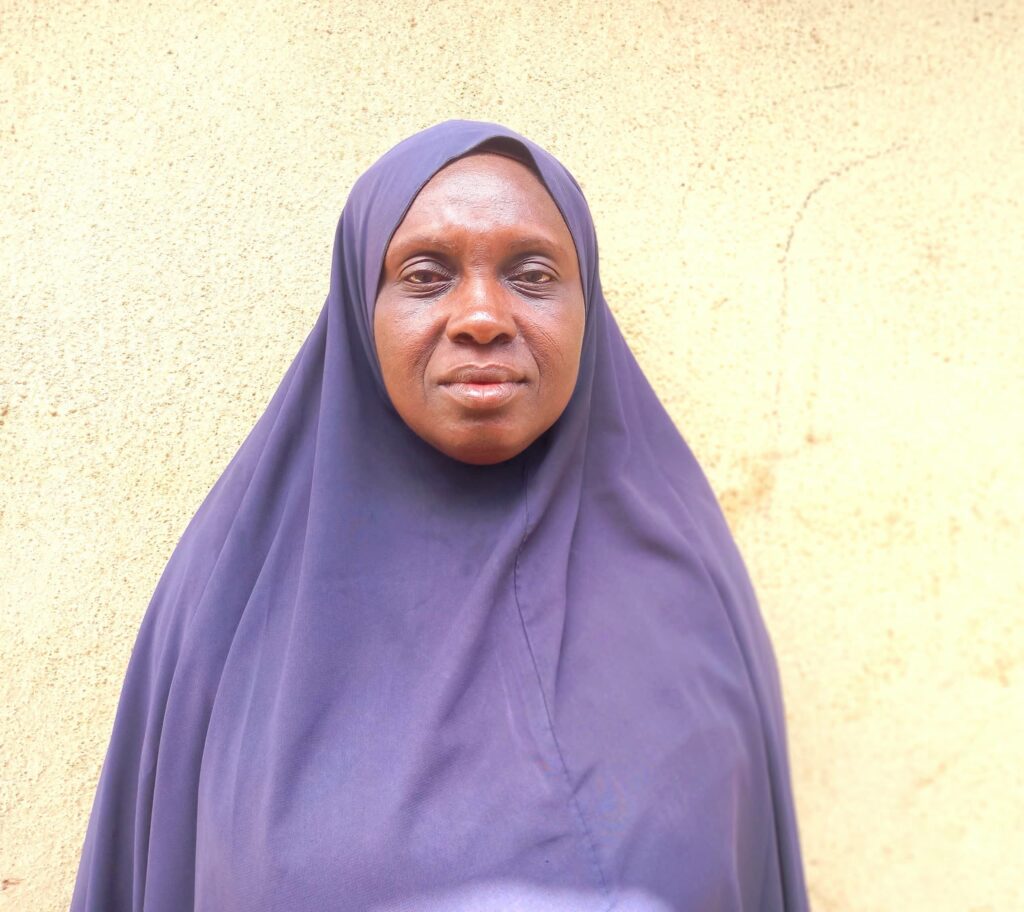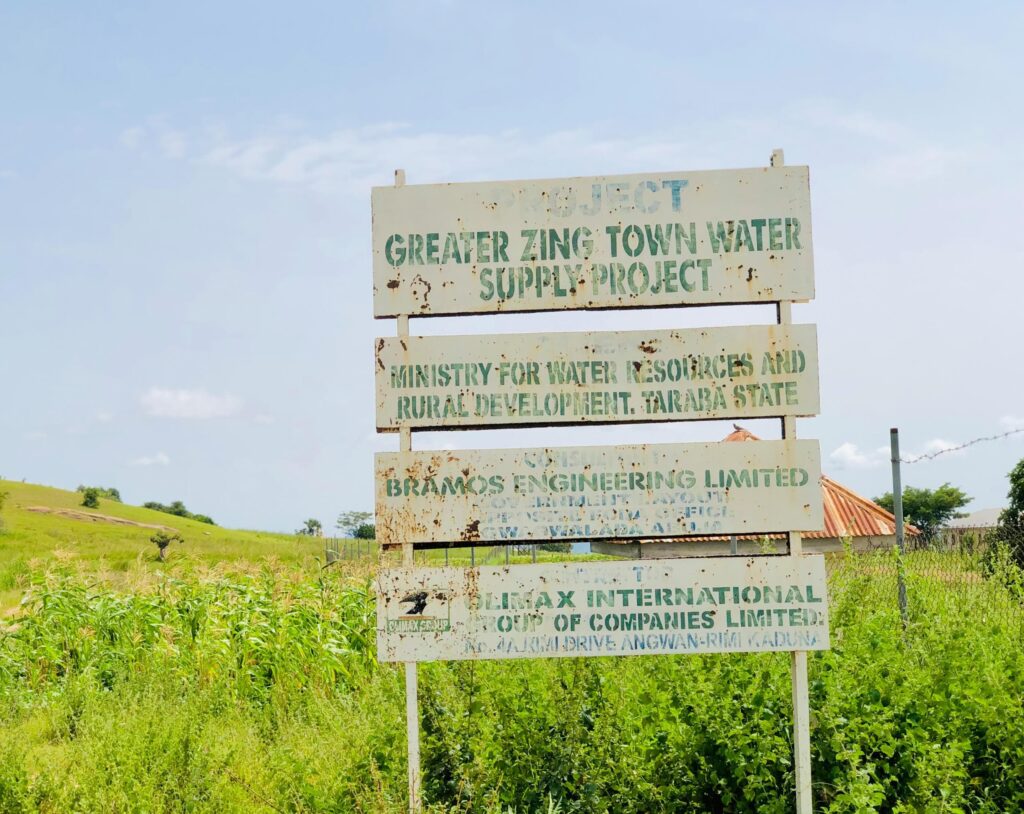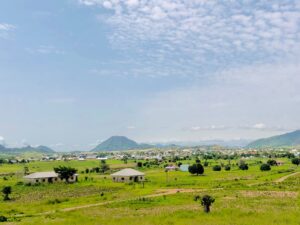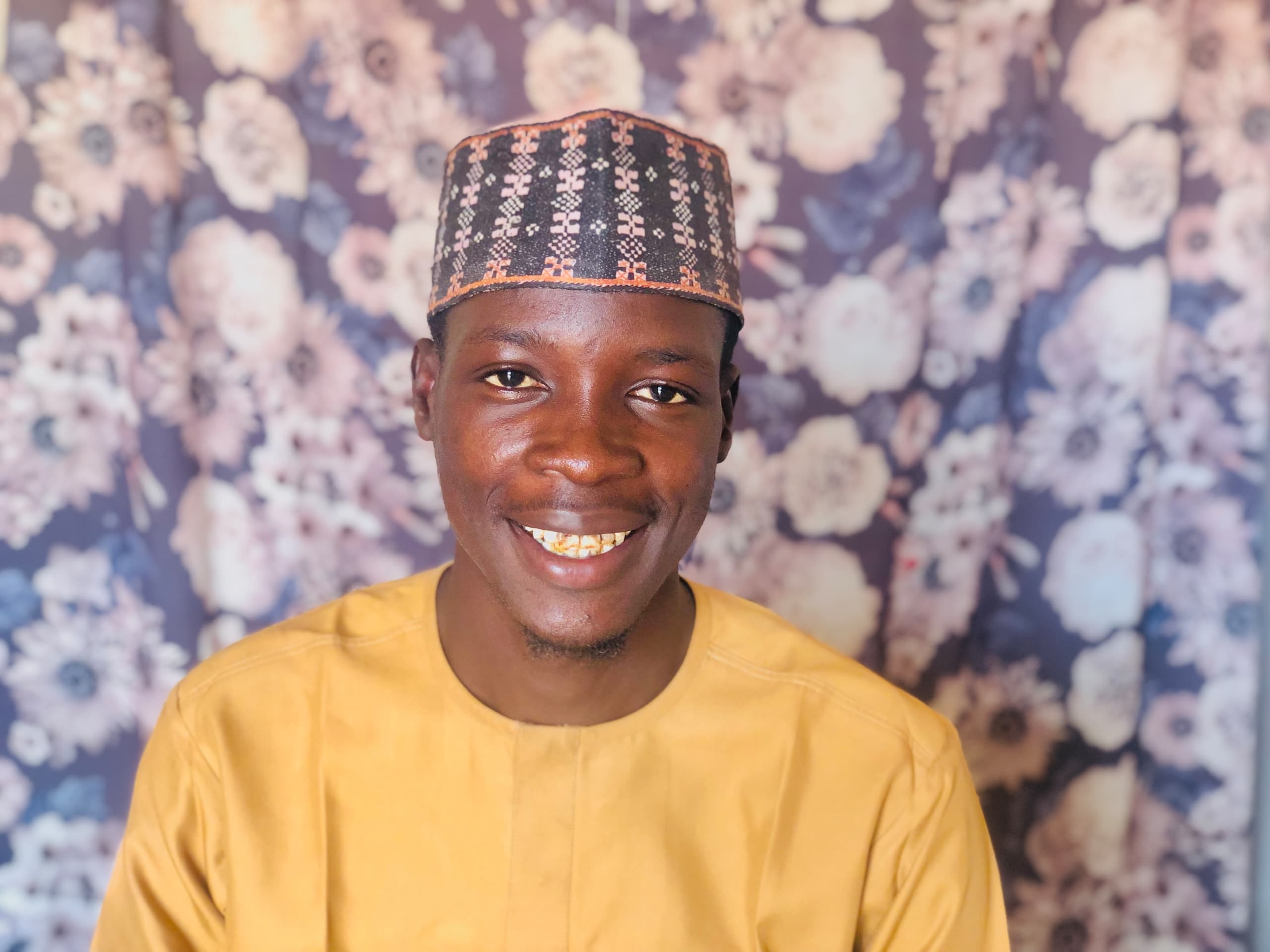When Rukayyatu Abubakar gave birth to her first child, she refused to give him the water sourced from the stream in Tudun Wada B’, one of the communities in Zing Local Government Area of Nigeria’s Taraba State.
Abubakar had seen first-hand what the water did to other children, and she didn’t want it for her child, so she kept giving him sachets of water to the detriment of her pocket.
Other times, rain provided respite, as Abubakar collected water with jerry cans. But rain was not always available.
“One day, I couldn’t cook because we didn’t have water. We only have boreholes where we buy water for N800 a cart. Sometimes, even if you have money, you can’t get water there,” Abubakar told Prime Progress.

She only stopped when her child started teething.
Saratu Joseph, a 45-year-old housewife from the same community, also faces challenges in getting clean water. Women like her can barely afford the N800 for a cart of water from commercial borehole operators. This is not a surprise, Nigeria, Africa’s largest democracy, houses 69 million people living in poverty. Of that number, 62 million of them, about 89 % live in rural areas, and 33 million of them are women like Joseph.
When this reporter visited the community, he observed that the community used to rely on a government-built borehole facility, but it stopped working more than a decade ago. Despite community efforts to repair it, the borehole repeatedly breaks down, eventually leading residents to abandon it.
Now, the community, mostly farmers and herders, are forced to patronise commercial borehole operators or forced to rely on the community stream, both coming at a huge cost to their pockets and health, respectively.
Water scarcity
Despite being Africa’s most populous nation with abundant water resources, access to clean water remains a critical challenge for millions of Nigerians. While official statistics report that 70% of the population has access to “basic” water services, the reality is far grimmer.
The situation is worse in rural areas where contaminated water sources and dwindling per capita availability paint a picture of a nation struggling to quench its thirst.
Many of these rural dwellers who struggle with access to clean water and now rely on unsafe, often distant water sources, waterborne diseases are the price that they pay.
For residents of Tudun Wada B’ and other communities in Zing, the price for their lack of access to clean water is a phenomenon that has plagued the community for years.

Brown teeth syndrome, a confidence killer
Ahmed Bature leaned on the wall inside his room and recalled the day when a non-academic staff in his faculty addressed him as someone with rusted teeth.
The incident took place in 2018 while he was a freshman at Bauchi State University, Gadau, and that experience has continued to haunt him, biting off his confidence as the day goes by.
“I felt bad about it. I wanted to respond emotionally, but I didn’t have the courage because the person was a revered staff member in the institution,” Bature said.
As someone with brown teeth, Bature often faces public humiliation that he says has a severe impact on his mental health. This continued until he began to meet other students in the school who had similar issues.
Bature had also thought of bleaching his teeth and constantly wearing a face mask to avoid the stigmatisation. “I think that’s what many people with brown teeth would have done, particularly those who were subjected to public disgrace like me,” he expressed.
Bature’s condition is not peculiar, and it is a norm amongst children born and raised in the Zing Local Government Area of Taraba State.
Adamu Manuwa, the community head of Anguwan Gombawa, one of the communities in Zing, said the condition, which he learned, is called Fluorosis, and it is due to the fact that the water they consume has an over-concentration of fluoride.
Manuwa said the condition has plagued their community for as long as he can remember and is now almost synonymous to every community.
“We gathered from our experiences that any child who grew up drinking water from those sources right from infancy tends to develop this brown teeth condition,” he said, adding that
“Fluorosis has been a feature some people use in describing every person from Zing.”
The 29-year-old said all efforts by the community to get the government to act have proved abortive.
According to Joel Hassan, a dental surgeon at the General Hospital Zing, the teeth decolouration prominent in the community is called dental fluorosis, and it is a result of exposure to high fluoride in water. It is categorised into mild, moderate, severe, and very severe.
The condition affects about 11.4% of the population impacted by this disorder.
“When it’s mild, it probably affects the victim psychologically. But it doesn’t make them feel pain. Once it’s severe, it puts some holes in the teeth, exposing them to hypersensitivity where anytime the victims take something cold, they will feel pain,” Hassan stated.
Hassan added that the psychological issues include finding it difficult to smile in public. “Some of the victims are shy and feel discriminated against by people with white teeth,” he said.
Abu-Abdulaziz Muhammed is one of persons the condition has affected his confidence psychologically. The 32-year-old said his teeth turned brown when he was a teenager. He thought it was something that would end soon, but it never did.
Now, whenever Muhammed travels to other places, he barely speaks in public and struggles to smile. “Some may feel that I don’t take care of my teeth, but anyone who knows the people of Zing believes that it’s a different case,” he added.
According to Manuwa, there weren’t any tangible measures employed by the government or individuals to tackle the issue of fluorosis, and some of his community members have tried adopting a means whereby they give their newborn babies sachet or bottled water imported from other states, instead of the one sourced from the streams.
“Some of our people tried to adopt it but the process is expensive and couldn’t be sustained by low-income families. On behalf of my people, I’m calling upon both the Federal Government and Taraba State Government to bring experts to carry out samples and develop research to understand the problem and offer solutions. So our people can have access to good quality drinking water,” he demanded.
A short-lived solution
Due to the lack of access to clean water within the communities of Zing, the Greater Zing Town Water Supply project was launched through the Taraba State Ministry for Water Resources and Rural Development in 2005.
The office of the Town Water Supply project, called Waterboard, is located at Anguwan Dossa in Zing.
Findings from community members show that the last time the water ran in the public pipes in the community was in 2015, and efforts by the community to get the government to fix it and supply them with clean, potable water have not yielded any results.

When this reporter visited the facility, he noticed that erosion had consumed some parts of the waterboard and the facility was also surrounded by broken pipes.
Staff seen in the facility refused to speak to the journalist, saying they weren’t authorised to share any information.
But Stephen Beru, the head of the Dossa Banka A’ community, held that issues with power supply were one of the reasons why the plant failed.
Beru also added that no one knows why and how their water came to have fluoride, but it is something that has been happening even before he was born.
“Before now, the waterboard used Mikano engines provided by the government to supply the water to residential houses. But now there is no fuel and their electric transformer has also spoiled. The staff there are mostly casual; they are not permanent staff. Some of them aren’t being paid, and that’s why they don’t care to make things work,” Beru said.

Confirming the plant’s challenge with power, Engr Musa Buba, The Managing Director of the Taraba Water and Sewerage Corporation, or TAWASCO, the state agency responsible for the plant, said the cost of diesel was their major challenge.
“We have been operating effectively in Zing until a heavy rain storm pulled down our newly installed electric transformer. Since then, we opted for diesel, and it reached a point where the cost of diesel fuel was high. We could no longer afford it, hence our inability to continue supplying water to the communities in Zing,” Buba recounted.
Buba also added that they couldn’t afford to repair the damaged electric transformer, but that work is in the pipeline to get the plant running and provide the communities with water.
“Recently, we went to the field with the commissioner for water resources, and we looked into the problems bedevilling water supply facilities in Taraba. Zing isn’t alone. We have other towns that are suffering from the same problem. So we have prepared a report and submitted it to the state government while hoping that it will soon release funds and provide us with the resources to tackle these challenges,” Buba said.
But while the TAWASCO waits for funds to carry out its responsibilities, community members like Bature hope that the action is quick and swift and helps them quench their thirst for clean, potable water.






